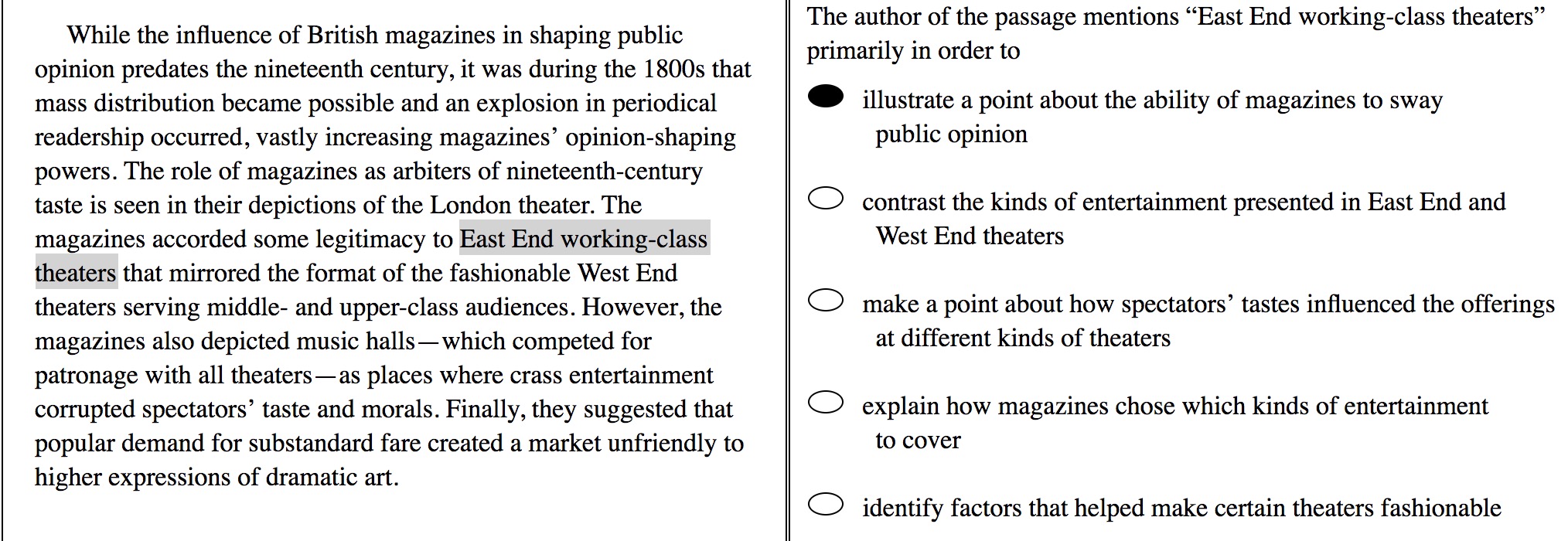I am confused about the this solution. It says that the author includes "East End working-class theaters" to illustrate that the magazines can sway public opinion.
Although the preceding sentence discusses this, how can we know that the working class had a favorable opinion of "East End theaters," thus confirming that their opinions were swayed? The passage never addresses the actual working-class's opinion.
The only possible explanation is that if this sentence was not supporting the idea that magazines could sway public opinion, then it would be a useless/irrelevant sentence. Is this enough justification to support this answer, or is there another explanation?

